Homemade Cleaning Routine: Are you tired of spending a fortune on cleaning products filled with harsh chemicals? I know I was! It felt like I was constantly battling dust bunnies and grime with an arsenal of bottles that smelled more like a science lab than a fresh, clean home. But what if I told you that you could achieve a sparkling clean house using ingredients you probably already have in your pantry?
For generations, resourceful homemakers have relied on the power of simple, natural ingredients to keep their homes clean and healthy. Think about it – before the advent of commercial cleaners, vinegar, baking soda, and lemon juice were the go-to solutions for everything from scrubbing floors to disinfecting surfaces. This tradition isn’t just about saving money; it’s about creating a healthier living environment for ourselves and our families.
That’s why I’m so excited to share my favorite DIY cleaning hacks with you! In this article, we’ll dive into creating your own effective and eco-friendly homemade cleaning routine. You’ll learn how to make everything from all-purpose cleaners to stain removers, all while saving money and reducing your environmental impact. Say goodbye to harsh chemicals and hello to a naturally clean and fresh home! Let’s get started on your journey to a simpler, healthier, and more sustainable way to clean.
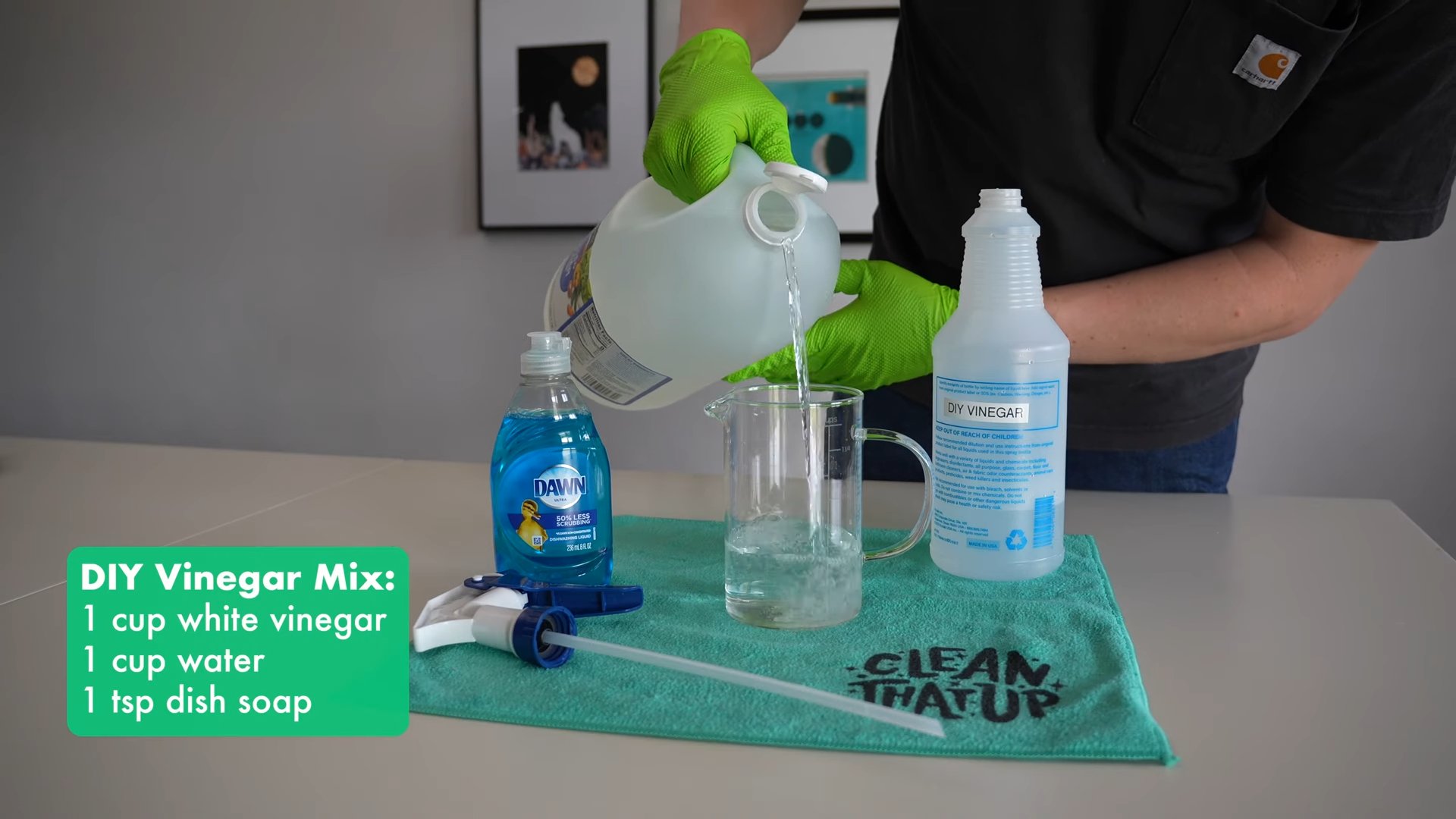
DIY Cleaning Power: My All-Natural Homemade Cleaning Routine
Okay, friends, let’s ditch those harsh chemicals and embrace the power of nature! I’m going to share my tried-and-true homemade cleaning routine that’s not only effective but also gentle on your wallet and the environment. Get ready to say goodbye to store-bought cleaners and hello to a sparkling clean home, naturally!
Why Go Homemade?
Before we dive in, let’s quickly touch on why I made the switch to homemade cleaners. For me, it’s all about:
* Saving Money: Seriously, the cost difference is HUGE. You’ll be amazed at how little it costs to make these cleaners compared to buying them.
* Avoiding Harsh Chemicals: I was tired of breathing in fumes and worrying about what I was spraying around my kids and pets.
* Reducing Waste: Less plastic bottles ending up in landfills? Yes, please!
* Customization: I can adjust the recipes to suit my specific needs and preferences.
The Essential Ingredients
These are the staples you’ll need to create your own cleaning arsenal. Don’t worry, you probably already have most of them!
* White Vinegar: This is my go-to for disinfecting, deodorizing, and cutting through grease.
* Baking Soda: A gentle abrasive and deodorizer that’s perfect for scrubbing.
* Lemon Juice: Adds a fresh scent and helps to dissolve hard water stains.
* Castile Soap: A natural, gentle soap that’s effective for cleaning just about anything. I prefer the unscented version so I can add my own essential oils.
* Essential Oils: These add a lovely scent and some have antibacterial properties. My favorites are lemon, lavender, tea tree, and eucalyptus.
* Water: Distilled water is best, but tap water works fine too.
All-Purpose Cleaner
This is my workhorse cleaner. I use it on countertops, sinks, appliances, and just about everything else.
What You’ll Need:
* Spray bottle
* 1/2 cup white vinegar
* 1/4 cup baking soda
* 1 teaspoon castile soap
* 10-20 drops essential oil (optional)
* 2 cups water
Instructions:
1. Combine Ingredients: In your spray bottle, combine the vinegar, baking soda, and castile soap. Be careful, as the baking soda and vinegar will react and fizz. Add the essential oils, if using.
2. Add Water: Slowly add the water to the spray bottle.
3. Shake Well: Secure the lid and shake well to combine all ingredients.
4. Use: Spray on surfaces and wipe clean with a cloth or sponge.
Important Note: Do not use this cleaner on granite or marble surfaces, as the vinegar can damage them.
Glass Cleaner
Say goodbye to streaks with this simple glass cleaner!
What You’ll Need:
* Spray bottle
* 1/4 cup white vinegar
* 2 cups water
* Optional: a few drops of essential oil for scent
Instructions:
1. Combine Ingredients: In your spray bottle, combine the vinegar and water. Add essential oils if desired.
2. Shake Well: Secure the lid and shake well to combine.
3. Use: Spray on glass surfaces and wipe clean with a microfiber cloth. For best results, use a clean, dry microfiber cloth.
Toilet Bowl Cleaner
This cleaner is effective at removing stains and deodorizing your toilet bowl.
What You’ll Need:
* 1/2 cup baking soda
* 1 cup white vinegar
* 10-20 drops tea tree essential oil (optional, for extra disinfecting power)
Instructions:
1. Sprinkle Baking Soda: Sprinkle the baking soda into the toilet bowl.
2. Pour Vinegar: Slowly pour the vinegar over the baking soda. It will fizz!
3. Add Essential Oil: Add the tea tree oil, if using.
4. Let Sit: Let the mixture sit for at least 15-20 minutes.
5. Scrub and Flush: Scrub the bowl with a toilet brush and then flush.
Oven Cleaner
Cleaning the oven is never fun, but this homemade cleaner makes it a little easier.
What You’ll Need:
* Baking soda
* Water
* Spray bottle
* Spatula or scraper
* Gloves
Instructions:
1. Prepare the Paste: Mix baking soda with enough water to form a thick paste.
2. Coat the Oven: Spread the paste all over the inside of your oven, avoiding the heating elements.
3. Let it Sit: Let the paste sit for at least 12 hours, or overnight.
4. Scrape and Wipe: Use a spatula or scraper to remove as much of the dried paste as possible.
5. Spray with Vinegar: Spray any remaining paste with white vinegar. This will cause it to fizz and loosen.
6. Wipe Clean: Wipe the oven clean with a damp cloth. You may need to repeat this process a few times to remove all the residue.
Drain Cleaner
Unclog those drains naturally!
What You’ll Need:
* 1/2 cup baking soda
* 1 cup white vinegar
* Boiling water
Instructions:
1. Pour Baking Soda: Pour the baking soda down the drain.
2. Pour Vinegar: Follow with the vinegar. It will fizz!
3. Let it Sit: Let the mixture sit for 30 minutes.
4. Flush with Boiling Water: Carefully pour a pot of boiling water down the drain.
Important Note: Be careful when pouring boiling water. Avoid splashing.
Furniture Polish
Give your wood furniture a natural shine.
What You’ll Need:
* Spray bottle
* 1/4 cup olive oil
* 1/4 cup white vinegar
* 10-15 drops lemon essential oil (optional)
Instructions:
1. Combine Ingredients: In your spray bottle, combine the olive oil, vinegar, and essential oil (if using).
2. Shake Well: Secure the lid and shake well to combine.
3. Test First: Test the polish on an inconspicuous area of your furniture before applying it to the entire piece.
4. Apply and Buff: Spray a small amount of polish onto a soft cloth and wipe the furniture. Buff with a clean, dry cloth.
Laundry Detergent
A gentle and effective laundry detergent that’s safe for sensitive skin.
What You’ll Need:
* 1 cup washing soda (sodium carbonate)
* 1 cup borax (sodium borate)
* 1 bar of castile soap, grated
Instructions:
1. Grate the Soap: Grate the castile soap using a cheese grater.
2. Combine Ingredients: In a large bowl, combine the washing soda, borax, and grated castile soap.
3. Mix Well: Mix the ingredients thoroughly.
4. Store: Store the detergent in an airtight container.
5. Use: Use 1-2 tablespoons per load of laundry.
Floor Cleaner
Keep your floors sparkling clean without harsh chemicals. This recipe is safe for most floor types, but always test in an inconspicuous area first.
What You’ll Need:
* Bucket
* 1 gallon of warm water
* 1/4 cup white vinegar
* 10-15 drops essential oil (optional, for scent)
Instructions:
1. Combine Ingredients: In the bucket, combine the warm water, vinegar, and essential oil (if using).
2. Mop the Floor: Dip a mop into the solution and wring out the excess water. Mop the floor as usual.
3. Rinse (Optional): If desired, rinse the floor with clean water.
Important Note: Avoid using this cleaner on hardwood floors that are not properly sealed, as the water can damage them.
Disinfecting Spray
For those times when you need a little extra disinfecting power.
What You’ll Need:
* Spray bottle
* 1 cup water
* 1/4 cup rubbing alcohol (70% isopropyl alcohol)
* 10-15 drops tea tree essential oil (optional)
Instructions:
1. Combine Ingredients: In your spray bottle, combine the water, rubbing alcohol, and tea tree oil (if using).
2. Shake Well: Secure the lid and shake well to combine.
3. Use: Spray on surfaces
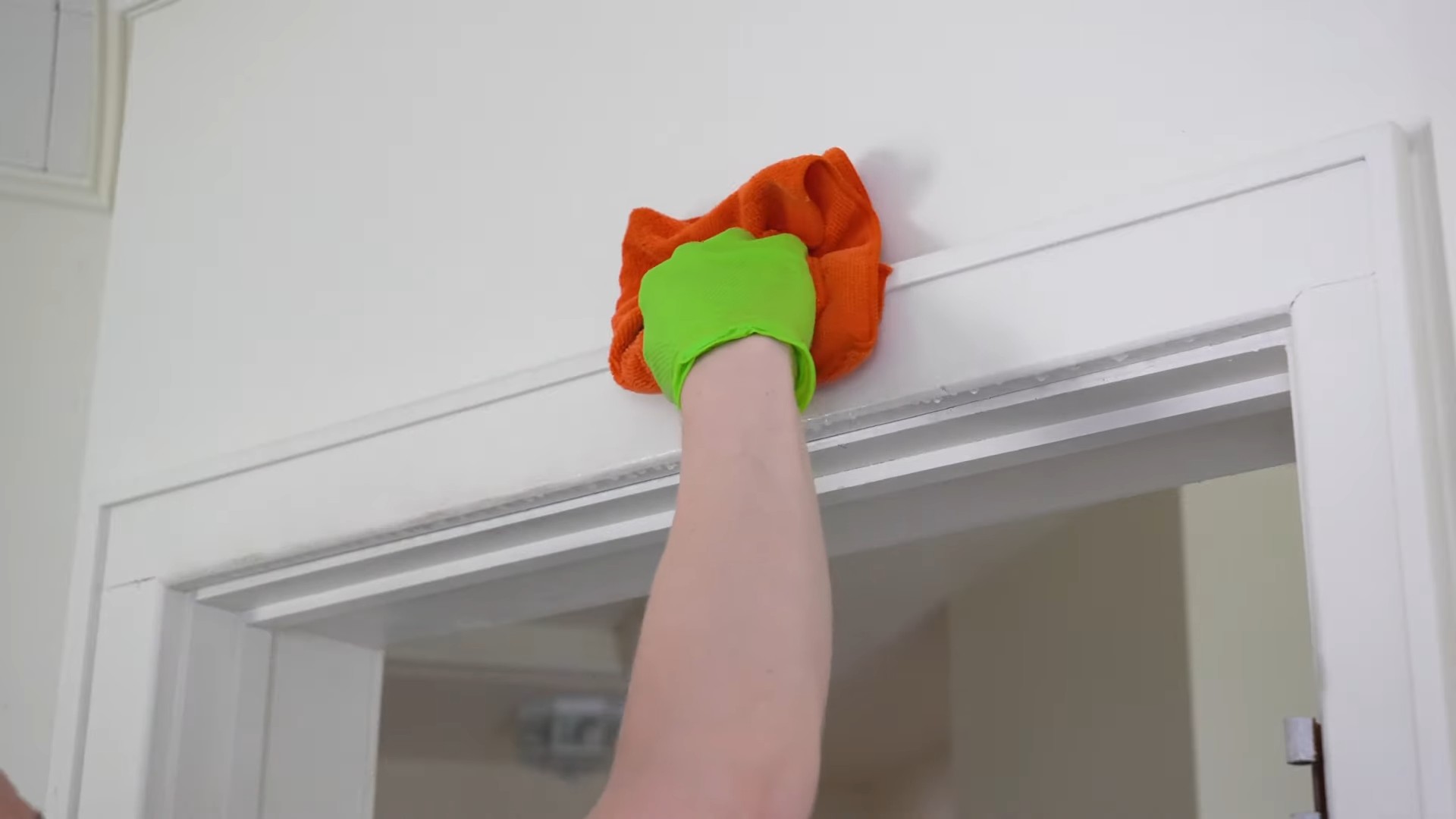
Conclusion
So, there you have it! Ditching the harsh chemicals and embracing a homemade cleaning routine isn’t just a trend; it’s a powerful way to create a healthier, happier home. We’ve explored how simple ingredients you likely already have in your pantry can be transformed into effective cleaning solutions that are gentle on your family, your pets, and the planet.
But why is this DIY approach a must-try? Beyond the obvious cost savings, you gain complete control over what you’re bringing into your living space. No more deciphering confusing ingredient lists filled with unpronounceable chemicals. You know exactly what’s in your cleaning products, allowing you to avoid potential allergens and irritants. This is especially beneficial for households with young children, sensitive skin, or respiratory issues.
Furthermore, a homemade cleaning routine empowers you to customize your cleaning solutions to perfectly suit your needs. Need a stronger degreaser? Add a bit more borax. Prefer a different scent? Experiment with various essential oils. The possibilities are endless!
Consider these variations to further personalize your cleaning experience:
* Citrus Power: Infuse your vinegar-based cleaners with citrus peels (lemon, orange, grapefruit) for a refreshing scent and added cleaning power. Simply soak the peels in vinegar for a few weeks before straining and using.
* Herb-Infused Cleaners: Add sprigs of rosemary, thyme, or lavender to your vinegar or water-based cleaners for a natural fragrance and potential antibacterial properties.
* Essential Oil Blends: Create custom essential oil blends to target specific cleaning needs. For example, a blend of tea tree, eucalyptus, and lavender can be used for disinfecting, while a blend of lemon, peppermint, and rosemary can be used for general cleaning and energizing.
* DIY Disinfectant Spray: For a stronger disinfectant, combine distilled water, white vinegar, and a few drops of tea tree oil. This is great for sanitizing surfaces in the bathroom and kitchen.
* Homemade Laundry Detergent Booster: Add a cup of washing soda to your regular laundry detergent for extra cleaning power, especially for heavily soiled clothes.
We understand that switching to a homemade cleaning routine might seem daunting at first, but we encourage you to start small. Choose one or two recipes to try this week and gradually incorporate more as you become comfortable. The satisfaction of creating your own effective and eco-friendly cleaning products is truly rewarding.
Don’t just take our word for it! We’re eager to hear about your experiences with these DIY cleaning solutions. Share your successes, your challenges, and your favorite variations in the comments below. Let’s build a community of eco-conscious cleaners and inspire others to embrace a healthier, more sustainable way of life. What are you waiting for? Grab your ingredients and start creating your own homemade cleaning routine today!
FAQ
Q: Are homemade cleaning products as effective as store-bought cleaners?
A: In many cases, yes! Ingredients like vinegar, baking soda, and borax possess natural cleaning properties that can effectively tackle dirt, grime, and even some bacteria. While they might not be as potent as some industrial-strength cleaners, they are often sufficient for everyday cleaning tasks and offer a safer, more eco-friendly alternative. The effectiveness also depends on the specific recipe and how you use it. For example, allowing a vinegar solution to sit on a surface for a few minutes before wiping can significantly improve its cleaning power. For heavily soiled areas or situations requiring strong disinfection, you might still need to use a commercial cleaner occasionally. However, for regular maintenance and general cleaning, homemade options are often more than adequate.
Q: What are the best essential oils to use in homemade cleaning products?
A: The best essential oils for cleaning depend on your desired scent and cleaning properties. Some popular choices include:
* Lemon: A natural degreaser and disinfectant with a bright, uplifting scent.
* Tea Tree: A powerful antibacterial and antifungal oil, ideal for disinfecting surfaces.
* Lavender: Known for its calming scent and antiseptic properties.
* Eucalyptus: A strong disinfectant with a refreshing scent, often used for respiratory support.
* Peppermint: A natural insect repellent and deodorizer with a refreshing scent.
* Orange: Similar to lemon, orange essential oil is a great degreaser and has a cheerful aroma.
When using essential oils, always dilute them properly with water or another carrier oil (like vinegar or alcohol) to avoid skin irritation or damage to surfaces. A general guideline is to use 10-20 drops of essential oil per cup of cleaning solution.
Q: Can I use homemade cleaning products on all surfaces?
A: Not necessarily. While many homemade cleaning solutions are safe for most surfaces, it’s essential to test them in an inconspicuous area first, especially on delicate materials like marble, granite, or wood. Vinegar, for example, can be too acidic for some natural stone surfaces and may etch or dull the finish. Baking soda can be abrasive and should be used with caution on delicate surfaces. Always research the specific cleaning needs of each surface and choose a cleaning solution accordingly. When in doubt, dilute the solution further or opt for a gentler alternative.
Q: How long do homemade cleaning products last?
A: The shelf life of homemade cleaning products varies depending on the ingredients. Solutions containing water are more prone to bacterial growth and should be used within a week or two. Vinegar-based solutions tend to last longer, up to a few months, due to vinegar’s natural preservative properties. Adding essential oils can also help extend the shelf life of your homemade cleaners. It’s always best to store your cleaning products in airtight containers in a cool, dark place to prevent spoilage. If you notice any changes in color, odor, or consistency, discard the solution.
Q: Are homemade cleaning products safe for pets and children?
A: Generally, yes, homemade cleaning products are safer for pets and children than commercial cleaners, which often contain harsh chemicals that can be harmful if ingested or inhaled. However, it’s still important to exercise caution. Keep all cleaning products out of reach of children and pets, and avoid using essential oils that are known to be toxic to animals. For example, tea tree oil is toxic to cats and dogs. Always research the safety of each ingredient before using it around your family and pets. If you’re concerned about potential sensitivities, consider using milder ingredients like castile soap or plain water.
Q: Where can I find the ingredients for homemade cleaning products?
A: Most of the ingredients for homemade cleaning products can be found at your local grocery store or pharmacy. Common ingredients like vinegar, baking soda, borax, and washing soda are readily available and relatively inexpensive. Essential oils can be purchased at health food stores, online retailers, or some pharmacies. You can also find specialized cleaning ingredients like castile soap or citric acid at some health food stores or online.
Q: What is washing soda, and how is it different from baking soda?
A: Washing soda (sodium carbonate) and baking soda (sodium bicarbonate) are both alkaline compounds, but they have different chemical properties and uses. Washing soda is a stronger cleaner and degreaser than baking soda. It’s often used in laundry detergents and for removing tough stains. Baking soda is a milder abrasive and deodorizer, commonly used for baking, cleaning, and neutralizing odors. Washing soda is more caustic than baking soda and should be handled with care, wearing gloves to avoid skin irritation.
Q: Can I use tap water in my homemade cleaning products?
A: While tap water is generally safe to use, distilled water is preferred for homemade cleaning products. Distilled water is free of minerals and impurities that can interfere with the effectiveness of the cleaning solution or leave behind residue on surfaces. Using distilled water can also help extend the shelf life of your homemade cleaners. If you don’t have distilled water, you can boil tap water and let it cool before using it in your cleaning products.
Q: What if my homemade cleaning product doesn’t work as well as I expected?
A: Don’t be discouraged! It may take some experimentation to find the right recipes and techniques that work best for your home and cleaning needs. Consider adjusting the proportions of the ingredients, trying different essential oils, or allowing the solution to sit on the surface for a longer period of time before wiping. You can also research alternative recipes or consult online forums for tips and advice from other DIY cleaners. Remember that homemade cleaning products may not be as powerful as some commercial cleaners, but they offer a safer, more sustainable alternative for everyday cleaning tasks.
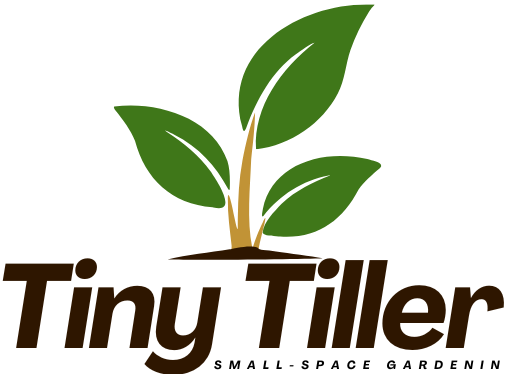
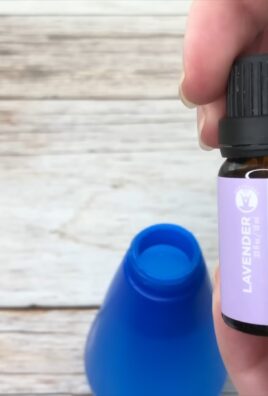
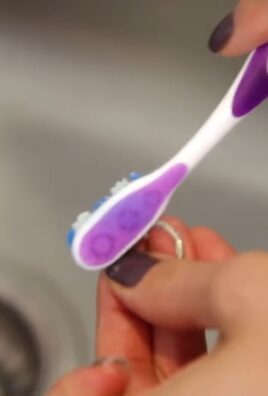
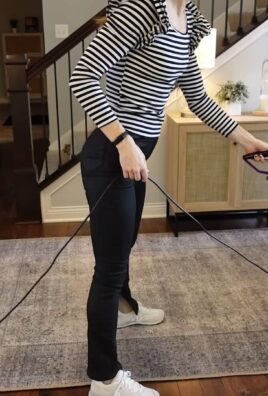
Leave a Comment